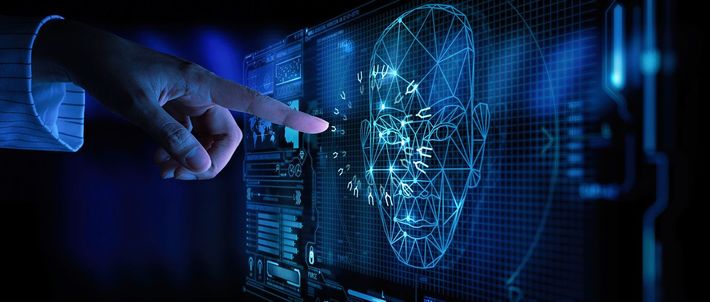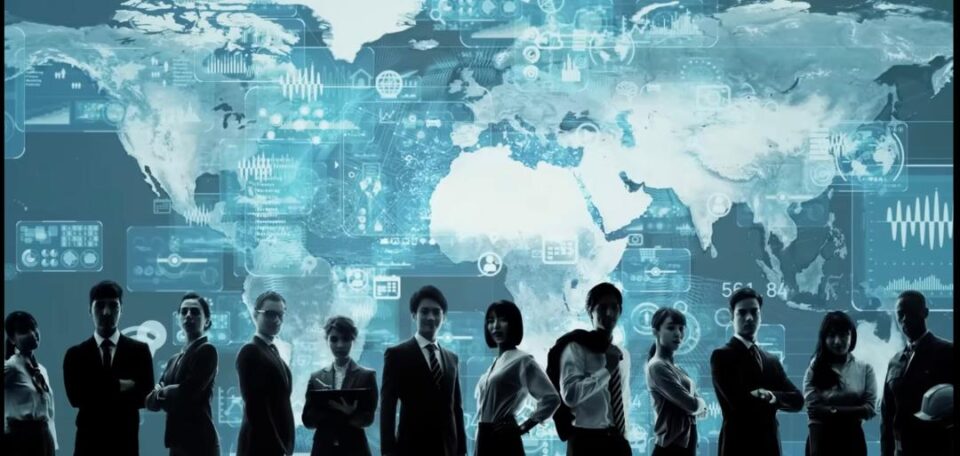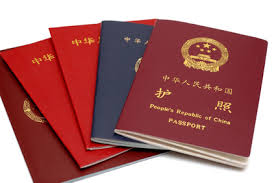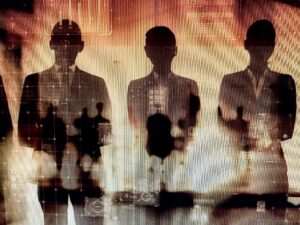Yu Inamura JCIA President
At the end of February, the U.S. government banned the use of TikTok by federal employees on their official devices. What are the dangers? Yu Inamura, a former public safety investigator, said, “If the Chinese authorities tell them to release information, TikTok and its parent company have no choice but to comply. In fact, TikTok has a questionable ‘criminal record'” – he said. . an obvious national security concern.
To me, it seems like an obvious national security concern,” Federal Bureau of Investigation Director Christopher Wray told a Senate Intelligence Committee hearing on March 8, 2023, regarding the Chinese short-form video-sharing app TikTok The FBI is now working with the Chinese short-time video-sharing application TikTok,” he said. In response to a question from Senator Marco Rubio (Republican), Wray also pointed out that the Chinese government may be using TikTok to collect and manage vast amounts of information on American citizens and manipulate public opinion on issues such as Taiwan (“China’s Ambitions, Russia’s Nukes and TikTok: Spy Chiefs Talk Biggest U.S. Security Threats,” Time, MARCH 8, 2023).
In the U.S., federal employees were banned from using TikTok on their official devices at the end of February, and on March 1, the U.S. House of Representatives Foreign Affairs Committee voted in favor of a bill to ban TikTok entirely in the U.S. (formal legislation would require passage by both the House and Senate and signature by the president). The European Union and Canada also ordered a ban on the use of TikTok on terminals used by government employees at about the same time, and on February 27, Chief Cabinet Secretary Matsuno announced in Japan that the use of TikTok is banned on official terminals.
Collecting and Analyzing Data on Users in Other Countries
So what is the threat of TikTok? A March 7 letter from U.S. Republican Senator Josh Hawley to Treasury Secretary Janet Yellen sets it out. (“Exclusive: Senator’s TikTok whistleblower alleges data abuses,” Axios, Mar 8, 2023)
The letter states that an anonymous former TikTok employee provided information that “employees of TikTok and its China-based parent company, ByteDance, some of whom are members of the Chinese Communist Party, can easily switch between accessing data in China and the U.S.” and that “engineers living in China regularly back up data on users in other countries. We witnessed engineers living in China regularly backing up, collecting, and analyzing the data of users in other countries.
Chinese Companies Unable to Resist the Will of Chinese Authorities
Some readers may think that TikTok and its parent company, ByteDance, would be safe if they did not have such malicious intentions. But there is a legal basis in China on which even well-intentioned companies cannot resist the government’s intentions.
China’s National Intelligence Law requires companies and private citizens in the country to cooperate with the Chinese government’s intelligence-gathering activities for security and public safety purposes. The Chinese government can request data held by companies and other entities at any time, and Japanese and other foreign companies are naturally subject to the law. This is a law that has surprised the West and made the US take it seriously.
In short, if the Chinese authorities ask for information, Byte Dance has no choice but to comply.
And a “criminal record” of pulling information from U.S. journalists.
It is also possible that ByteDance, under the direction of the Chinese government, intended to make TikTok popular around the world, install backdoors in the app, and collect information on a daily basis. It is undeniable that the company intended to make TikTok popular around the world under the direction of the Chinese government, and to plant backdoors in the app to collect information on a daily basis.
In fact, TikTok has a questionable “criminal record”: in December 2022, Forbes magazine and others reported that several employees of TikTok and ByteDance in the U.S. illegally accessed user data of American citizens, including two journalists, a fact that TikTok has admitted (“EXCLUSIVE (“EXCLUSIVE: TikTok Spied On Forbes Journalists,” Forbes, Dec. 22, 2022).
Incidentally, TikTok has more than 1 billion users worldwide, and it is estimated that about 15 million people in Japan use TikTok.
What are the risks of information leakage from TikTok to the Chinese authorities?
The main functions of TikTok are posting short videos and exchanging messages, but when the application is installed, users are asked to grant permission to access contact information, location information, photos, and videos. It also collects detailed technical information such as IP address, device ID, and the names and types of other apps and files installed on the device.
The privacy policy states that “voiceprint and facial information is also automatically collected.
In 2021, TikTok’s privacy policy will include the collection of users’ voiceprints and faceprints. In 2021, TikTok’s privacy policy added a statement that it may automatically collect biometric data such as users’ voiceprints, facial information, and physical characteristics, as well as the content of their conversations (“TikTok just gave itself permission to collect biometric data on US users, including ‘faceprints and voiceprints and voiceprints'”). TikTok just gave itself permission to collect biometric data on US users, including ‘faceprints and voiceprints'” TechCrunch, June 4, 2021). It is easy to create deep fake videos or fake accounts on other social networking sites using your faceprints, body image, and voice data obtained in this way (1). 1 Although the terms “biometric information” and “faceprints and voiceprints” were removed from the privacy policy as of April 2023, “the presence and location of your face in the image and the physical characteristics and traits of your face, voice, and the characteristics of your voice, as well as the way you speak in user content, are still considered to be biometric data. The terms “the existence and location within an image of face and body features and attributes, the nature of the audio, and the text of the words spoken in your User content” were excluded. text of the words spoken in your User Content” for “non-personally-identifying operations. For Chinese authorities, TikTok may also be an extremely effective tool in “information warfare,” such as manipulating public opinion in other countries. It is possible to manipulate the ranking of videos to remove anti-Chinese posts from the rankings, or to make effective use of the deep-fake videos mentioned earlier to shape public opinion friendly to China. For example, it should be considered possible to use such means to achieve the goal of gradual unification of Taiwan without taking the major risk of military invasion. (To begin with, China is highly sensitive to information warfare, with groups such as the “Five-Headed Party” and other intelligence operatives.) Keystrokes were also being intercepted. In addition, for the Chinese authorities, the ability to collect and accumulate information on users in other countries is of great significance. Last August, Austrian IT experts discovered that the browser in the TikTok app uses special JavaScript code to collect all the user’s keystrokes. In short, search history, login IDs and passwords for various websites, credit card information, etc. are also being collected (“TikTok monitors all keystrokes in in-app browser – denies abuse,” CNET Japan, August 22, 2022). August 22, 2022). TikTok explained that the purpose of this JavaScript code was for “debugging, troubleshooting, and performance monitoring,” and claimed that it was not intended to collect input information (the code in question was removed in a later version of the app). Collection of inconspicuous but important “search history Search history is quite important personal information. The author has experience analyzing cell phones in criminal cases involving forcible crimes (murder, arson, forced sexual intercourse, etc.) and public safety investigations, and the search history reflects the concerns and interests of the individual, making it extremely effective investigative information. (In one case, a suspect’s browser search history was admitted as evidence at trial.) If the Chinese authorities can obtain the search history collected via the TikTok app in a form that is linked to individual user information, it would be an extremely effective tool for tracking and bringing back Chinese dissidents abroad in cooperation with China’s overseas police (2), which has become a hot topic recently, and for identifying and monitoring anti-Chinese speakers in other countries. It will be an extremely effective tool for identifying and monitoring anti-Chinese speakers in other countries.
*2: An informal organization supposedly put in place to monitor and track dissident Chinese living abroad and forcibly return them to their home countries. According to a report published by the Spanish human rights organization Safeguard Defenders, there are 102 such organizations in more than 50 countries around the world, including three in Japan (Tokyo, Nagoya, and Fukuoka).
Anti-Communist Chinese Students Who Have Returned Home Before You Know It
In my private sector experience, there was a Chinese student living in Japan who had anti-Communist ideology and was posting such content on another social networking service that was not TikTok. It is unclear what exactly happened between the two, but it later emerged that she had close connections to the Chinese Communist Party (CCP).
Even if you are not Chinese, if the Chinese authorities can obtain useful information from your phone, you could unintentionally contribute to their espionage activities. In extreme cases, you could even be forced to cooperate in political maneuvering and espionage activities later in life, based on inappropriate videos you posted on TikTok when you were young.
TikTok is not the only threat.
TikTok is not the only smartphone app suspected of involvement by Chinese authorities. In September 2022, the U.S. FBI issued a report to the U.S.-based Twitter, saying that at least one of its employees was an agent of China’s Ministry of State Security (MSS). In September 2022, it was reported that the U.S. FBI had notified Twitter that at least one of its employees was an agent of the Chinese Ministry of State Security (“Chinese agent among Twitter employees, FBI notified whistleblower,” Reuters, September 14, 2022).
Furthermore, network equipment and cellular base station equipment made by Chinese manufacturers such as Huawei and ZTE have often been pointed out by the U.S. government and others as having backdoors (U.S. Officials Say Huawei Can Covertly Access Telecom, The Wall Street Journal, Feb. 12, 2020).
The nation of China is a very formidable one. As described in “Super Limit Warfare,” co-authored by Qiao Liang and Wang Xiangbo of the Chinese People’s Liberation Army, more than 20 years ago, they listed numerous methods of warfare, including conventional warfare, diplomatic warfare, state terror warfare, intelligence warfare, financial warfare, network warfare, legal warfare, psychological warfare, and media warfare.
Although the means of realization have changed with the times, many of the themes described in the book are now manifesting themselves as threats, and we should consider the use of social networking services as playing a role in such operations, as well as the “National Data Bureau,” which was newly established at the March 7 All People’s Congress, and what kind of operation will be carried out based on the aforementioned National Intelligence Law and other factors. The National Data Bureau, which was newly established at the National People’s Congress on March 7, should be closely monitored to see how it will operate in light of the aforementioned National Intelligence Law.












